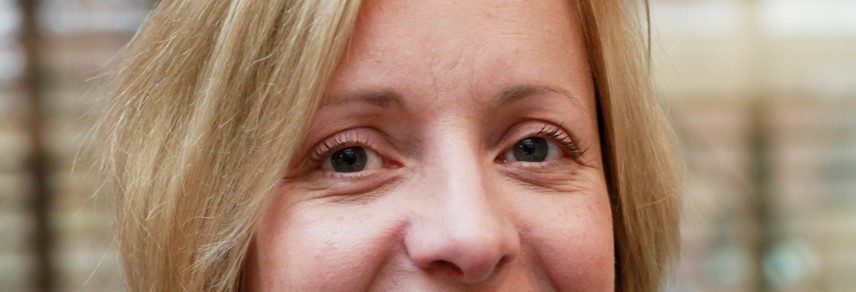
FIVE MINUTES WITH REBECCA CLEAR
The former head of corporate stewardship at WWF UK, and current global head of media relations for the WWF, Rebecca Clear talks corporate partnerships and sustainability strategies

What does the World Wildlife Fund for Nature (WWF) do in terms of corporate stewardship?
Corporate stewardship is an approach for businesses to make sure that they are aware of their own exposure to risk in the supply chain, mainly around natural resources like water scarcity, water stress, climate change or supply chain issues. Corporate stewardship can apply to any business trying to look at its sustainability.
What are the objectives for the WWF’s corporate stewardship strategy?
What we really want to see is sector change, broad change. We often partner with quite large companies because it’s an efficient way for us tackle a system or a whole trade that needs to change. For example, with fishery management you can go through a big company – like we’ve worked with M&S and we’re currently working with John West – then we can see quite huge changes because they’ve got the influence and they buy such large supplies.
What are the barriers to companies in terms of undertaking good corporate stewardship?
Some of the barriers are a lack of knowledge. It also feels like they’ve got to perhaps change their whole model and what we’re really looking for is incremental change and addressing supply change issues.
We’re not expecting a business to completely scrap everything they’ve ever done; it’s just not realistic. You need to introduce things in a pragmatic and sensible way, nevertheless the challenges that we face are really urgent. What we want to try and encourage businesses to do is to think long term. I think one of the barriers for businesses is that the investment cycle and the way that shareholders perhaps see the world are very short cycles. It’s sort of three, five years, that kind of thing. Whereas actually, 20 years is not that far away in terms of the challenges that we face around climate and around biodiversity, but it is a long way in terms of a companies planning practices and thought process.
How can businesses think long-term about sustainability?
What we’re trying to engender in businesses is this way of thinking that if they don’t adapt the way that they produce, manufacture or work with colleagues, then they will actually not survive either. Somewhere along every business’ supply chain, they are relying on natural resources. If you look at manufacturing and production cycles somewhere along the line they are relying on nature for their resources. It’s really naïve and short- sighted to not value and invest in nature in the same way that we do in every other part of our supply chain.
It is a challenge because we understand that businesses face many of their own uphill struggles and vulnerabilities. But now that we have the Sustainable Development Goals and we have climate agreement for the first time, businesses will need to play their part. I think they also feel that governments need to tell them what they need to do. That’s why the WWF does advocacy as well, because businesses do need some guidance, they need support and they need regulatory frameworks. Sometimes I think businesses feel they are being asked to fix everything, but the biggest barrier is probably that short term cycle and as a result of that, not appreciating their own vulnerabilities in terms of the state of the planet.
How do partnerships with the WWF work?
No partnership is the same. Some of them are more around fundraising and communication. But what we really want to do, and what we do more of, is what we call transformational partnership. If you want to transform a business, or elements of it, where possible, we take the corporate stewardship approach and that might be in a bilateral relationship.
What is best practice in corporate stewardship?
The best thing companies can do is think long term and see the risks for what they are. They are genuinely a threat to most businesses, but they are also a huge opportunity. If businesses can do one thing it would be to get their boardroom to understand that they need to think in 10-20 year cycles. They need to invest for that and they need to be aware of how things will play out if they don’t change course now. That’s the single most important thing and it’s very, very difficult to achieve. But a brave business is a rare thing when it comes to that because they won’t move if someone else isn’t moving. That’s why partnerships are so important.



